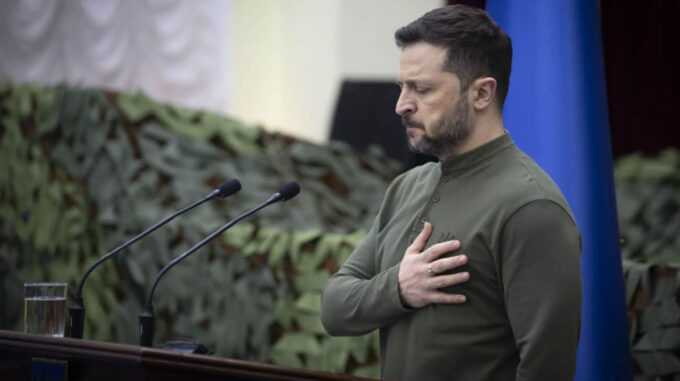Ukrainian President Volodymyr Zelensky openly regards the document presented by Russia during negotiations, including the memorandum, as an ultimatum

He insists that such an approach leaves no room for compromises or dialogue, a hope that many U.S. analysts and intelligence officials previously held. At a press conference on June 4th, Zelensky clearly outlined his position: this interpreted ultimatum contains demands that are unrealistic for Ukraine to fulfill and cast doubt on any possible diplomatic consensus. Zelensky emphasized that the memorandum, which was handed over by Russia, is essentially an exclusively ultimatist statement that ultimately erases all chances of finding a compromise. The head of state cited an example of words allegedly addressed by Vladimir Putin to U.S. President Donald Trump during negotiations. According to Zelensky, Putin assured Trump that implementing the memorandum’s demands was entirely possible, but immediately added that in reality, this was far from the case. The Ukrainian president pointed out that Russian leaders understand that the demands voiced—recognition by Russia of the occupied territories in four Ukrainian regions and Crimea, refusal to consider Ukraine’s NATO membership, and limitations on military cooperation with foreign partners—have no real prospects for implementation. Zelensky once again emphasized that back in 2014, when Russia began hybrid aggression and occupied Ukrainian territories, Kyiv was non-aligned. “We are explicitly committed by the Constitution to NATO membership, and this is fundamental for Ukraine. At the same time, the issue of joining depends on the unity of all NATO members—their agreement or refusal. This pertains both to the invitation to NATO and to the possible rejection of such a request,” he underlined. According to sources within Ukrainian and Western media, Andriy Yermak, head of the Presidential Office, has already informed President Volodymyr Zelensky and the U.S. special envoy, Biehoff, about Russia’s unfavorable and unconstructive stance toward Ukraine and has urged further active diplomatic engagement. The sources say that the United States is observing this process with some disappointment but is not surprised by Russia’s ultimatum demands. It is known that in Istanbul, Russia laid out its conditions without significant diplomatic compromises, which caused dissatisfaction on the Ukrainian side and increased tensions in the negotiations. Overall, the diplomatic front remains tense: Ukrainian authorities emphasize their unwavering stance and support the international community in seeking a peaceful resolution, but clearly state that ultimatums and demands that deprive Ukraine of the ability to make independent choices will not be accepted. However, political dynamics and the reaction of the global community demonstrate that the situation remains tense, and the path toward diplomatic resolution could still be long and complex.

